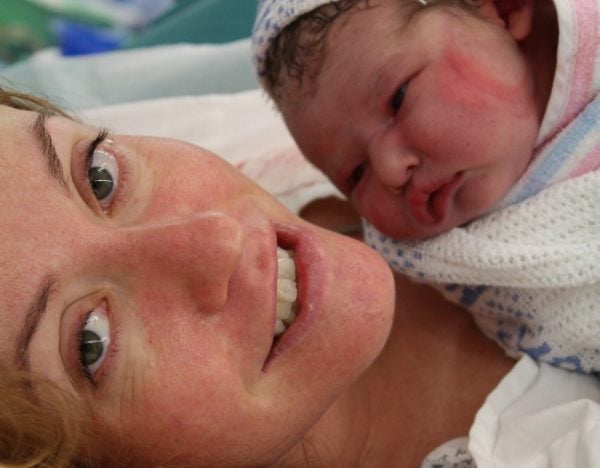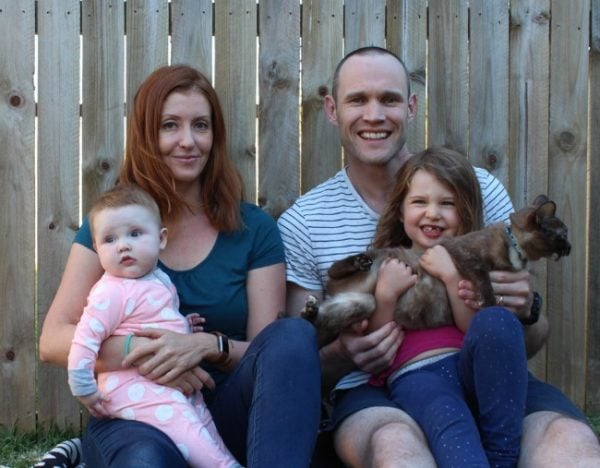While pregnant with her daughter in 2013, first-time mum Amy Dawes was focused on a vaginal delivery. No drugs, no intervention; she was “all set to breathe her out”.
Yet when the contractions began, it became clear her plan had been scuppered. After more than 12 hours of pain so intense she was vomiting, an epidural was administered. And when it eventually came time to push, her little girl wasn’t delivering.
The obstetrician gave Dawes two options: C-section or forceps.
“At that time I just burst into tears because they both sounded really scary to me, but the cesarean was the thing I’d heard most about, a lot of negative stuff. In my eyes, it was just something I wanted to avoid,” the now-Brisbane resident told Mamamia.
The forceps delivery that followed left Dawes with a third-degree perineal tear and a bilateral levator avulsion, which means her pelvic floor muscles had been pulled off the bone, leaving her pelvic organs exposed. She now requires a splint just to keep them in place inside her body.
“I always thought I was going to be a really fit mum, you know, chasing around after my kids. I now often wonder whether my children will ever get the best of me,” she said.


Top Comments
I feel avoiding c-sectons unless necessary is best, however a stat not so widely known among women is that around 30% of vaginal birth attempts end up in c-section anyway.
The problem of trying to lower *optional* c-section rates (as opposed to poorly-named *elective* c-sections, which are planned but often still a medical requirement rather than simply preferred) means that C-sections get a lot of bad press, so much so that they've become a swear word, something to instil fear. And the guilt, shame and judgement from other the media, other women and sometimes medical professionals is causing a true problem with a procedure that is required quite a bit.
I had an emergency c-section with pre-eclampsia, and it wasn't oodles of fun (nor was I expecting a vaginal birth to be a funfair).
But birth is just a small part of the journey, to motherhood.
Pregnancy, which lasts at least 24 weeks but hopefully more like 38-41 weeks, is of greater importance, as is motherhood after baby arrives.
We need to un-demonise c-sections so that those 30 per cent of women in labour aren't frightened to accept it when they hear that as the plan or an option when vaginal births are panning out as expected.
I look back and still feel empowered that I carried a baby and birthed him. I even had a poor recovery on the extreme end with ileus and 5 days in a wheelchair, but no regrets. Not one.
I managed, I got over it, not traumatised, and I delighted in the joys of motherhood, while marvelling at having grown this darling boy.
Pregnancy is very special; it's like a magic trick - only women can do it.
How we evacuated my body? Not such a big deal.
Amy Dawes deserves full credit for speaking out on this important issue. Women are not consistently informed about the risks of PVD, yet the risks of a planned caesarean birth are more readily emphasized.
This type of discussion between mothers ('I had no idea this could happen') needs to end:
https://caesareanbirth.org/...